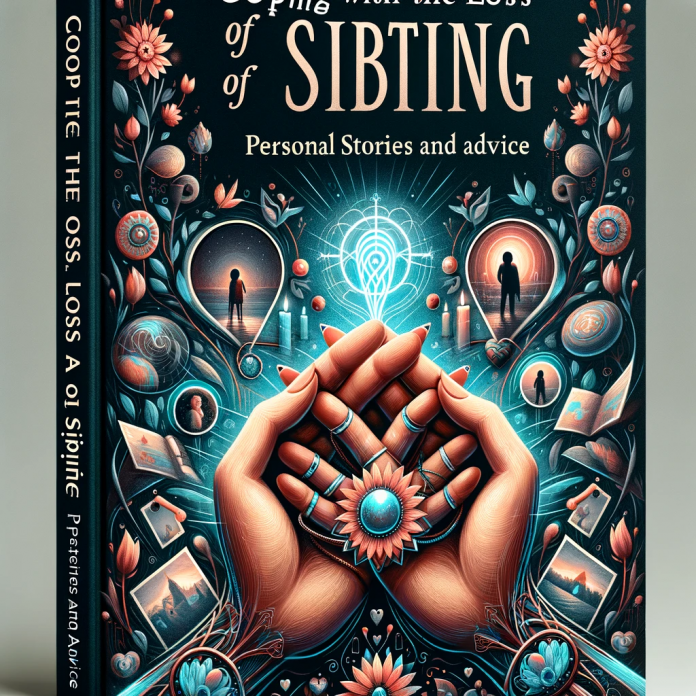Experiencing the loss of a sibling can be a profound, life-altering event. The bond between siblings is unique and the grief that follows such a loss is often complex and multifaceted. This article aims to provide personal stories and advice to help those who are navigating this challenging journey.
Understanding Sibling Loss
The death of a sibling can bring about a range of emotions, from intense sadness and anger to guilt and confusion. It's important to understand that these feelings are normal and part of the grieving process. Each person's experience with loss is unique and there is no right or wrong way to grieve.
For many, the loss of a sibling can feel like losing a part of themselves. Siblings often share a deep, lifelong bond that is difficult to replicate. They are our first friends and confidants, and their absence can leave a void that is difficult to fill.
The Impact of Age and Circumstance
The age and circumstances surrounding the death can greatly impact how one copes with the loss. For instance, losing a sibling in childhood or adolescence can have a profound impact on one's development and worldview. Similarly, losing a sibling to a sudden or traumatic event can lead to feelings of shock and disbelief.
On the other hand, if the death was expected due to a long-term illness, there may be feelings of relief mixed with grief. It's important to remember that all these reactions are normal and part of the healing process.
Personal Stories of Loss and Healing
Personal stories can provide comfort and a sense of connection for those dealing with sibling loss. They can also offer insights into the various ways people cope and find healing. Here are a few stories from individuals who have experienced this loss.
Story 1: Finding Connection Through Shared Memories
John lost his older brother to cancer when they were both in their twenties. He found comfort in sharing stories and memories of his brother with family and friends. By keeping his brother's memory alive, John felt a continued connection with him.
John also found solace in writing letters to his brother, expressing his feelings of loss and love. This helped him process his grief and feel closer to his brother.
Story 2: Seeking Support Through Therapy
When Sarah lost her younger sister in a car accident, she felt overwhelmed by feelings of guilt and sadness. She sought help from a therapist who specialized in grief counseling. Through therapy, Sarah learned to navigate her complex emotions and began the healing process.
She also joined a support group for individuals who had lost a sibling. This provided a safe space for Sarah to share her feelings and experiences, and to connect with others who understood her pain.
Advice for Coping with Sibling Loss
While everyone's grief journey is unique, there are some strategies that can help in coping with the loss of a sibling. Here are a few suggestions.
Allow Yourself to Grieve
It's important to give yourself permission to grieve. This means acknowledging your feelings and allowing yourself to experience them, rather than trying to suppress or ignore them. Grief is a natural response to loss and it's okay to feel sad, angry, or confused.
Remember, there is no set timeline for grief. It's a process that takes time and everyone moves through it at their own pace.
Seek Support
Don't hesitate to seek support, whether it's from family, friends, a mental health professional, or a support group. Talking about your feelings can help you process them and make you feel less alone.
Support groups can be particularly helpful as they provide a space to connect with others who are experiencing similar losses. They can also provide resources and coping strategies.
Remember Your Sibling
Keeping your sibling's memory alive can be a powerful part of the healing process. This can be done in many ways, such as sharing stories, looking at photos, or participating in activities your sibling enjoyed.
Some people find comfort in creating a memorial or tribute to their sibling, such as planting a tree in their honor or making a donation to a charity they cared about.
Conclusion
Coping with the loss of a sibling is a deeply personal and often challenging journey. It's important to remember that there is no right or wrong way to grieve and that it's okay to seek help. By sharing personal stories and advice, we hope to provide some comfort and guidance for those navigating this difficult path.


-banner.png)





